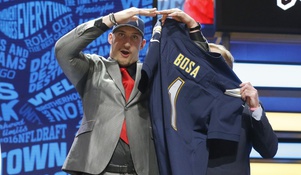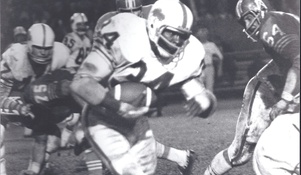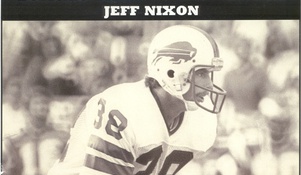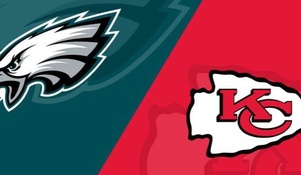The "Diagnose CTE" Research Project
I want to alert former NFL players to a new study designed to develop and refine methods of diagnosing Chronic Traumatic Encephalopathy (CTE) during life and to examine risk factors for CTE. The DIAGNOSE CTE Research Project is a multi-center, multi-disciplinary, 7-year study. If you would like to be a part of this study, please note that all travel expenses are covered. In addition, participants may receive up to $500 compensation.
The study is currently enrolling men ages 45-74 who are:
1. Former NFL players who played three or more seasons in the NFL
2. Former varsity college football players
3. Men who have never participated in contact sports or have had any brain injury
For more information or to find out if you are eligible for the research project, contact: Taylor Platt, Recruitment Coordinator at (617) 414-1193 or email her at: [email protected]. You can also download and distribute the flyer with details about the study to other former players at this link: Diagnose CTE Research Project Flyer
At this time, CTE can only be diagnosed after death through neuropathological examination of brain tissue. Dr. Ann McKee and colleagues, with funding from the National Institutes of Health for the “Understanding Neurologic Injury in Traumatic Encephalopathy” (UNITE) Project, have made significant gains in the understanding and description of the neuropathological changes of CTE.
Although there has been a great deal of media attention to CTE, the scientific study of this disease is still in its early stages. Critical questions remain, such as: How common is CTE? Why do some people get it and others do not? What is the mechanism leading from repetitive head impacts to the brain disease and later life symptoms? What are the risk factors for CTE? Can CTE be treated or even prevented?
To answer these questions, one of the critical next steps is to develop methods of detecting and diagnosing CTE during life. This will be a 7-Year multi-site research project that will try to develop methods of diagnosing Chronic Traumatic Encephalopathy during life and examine potential risk factors for this degenerative brain disease. This study is not designed to provide a diagnosis or treatment to participants.
Goals of the DIAGNOSE CTE Research Project:
• To collect and analyze neuroimaging and fluid biomarkers for the detection of CTE during life.
• To characterize the clinical presentation of CTE.
• To examine the progression of CTE over a three year period.
• To refine and validate diagnostic criteria for the clinical diagnosis of CTE.
• To investigate genetic and head impact exposure risk factors for CTE.
• To share project data with researchers across the country and abroad in order to expedite growth in our understanding and treatment of this disease.
The ultimate goal is to be able to prevent and treat CTE and other long term consequences of repetitive head impacts in athletes, military personnel, and others.
Participation in the study will include:
A three day visit at one of the four study sites for:
• A thorough medical history and neurological exam
• A Magnetic Resonance Imaging (MRI) scan of your brain
• Collection of blood and saliva samples
• A spinal tap (also called a lumbar puncture) so we can collect fluid from your spinal column
• Two Positron Emission Tomography (PET) scans to detect if there are elevations of specific proteins in your brain.
• Completion of questionnaires on your mood and behavior
• A set of standardized tests of your memory and other cognitive skills
The Study sites include the Arizona Mayo Clinic-Scottsdale - with PET scans at Banner Alzheimer’s Institute; Boston University School of Medicine - with MRI’s at Brigham and Women’s Hospital; Las Vegas Cleveland Clinic Lou Ruvo Center for Brain Health and the New York University Langone Medical Center.
If you decide to participate, you could be helping the general population and future generations of NFL players. I hope the active players and NFL owners remember this when the next CBA is negotiated in 2020 and they want to know why we are asking for modest increases in our Pension.
We want to save the game and protect players that we will someday call our alumni brothers.






